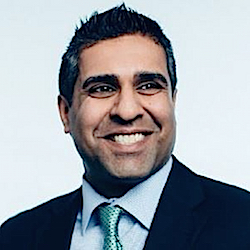
Caring for people with Alzheimer’s and related dementias arguably is one of the most demanding jobs in healthcare. There are 5.2 million Americans who have Alzheimer’s disease today. A staggering 15 million family members have stepped up to care for them – or 22% of all family caregivers nationwide.
Although their loved ones confront challenges to their independence as a result of the progressive disease, these family caregivers confront challenges of their own. In trying to keep up with the frequently evolving symptoms and figuring out effective management strategies, caregivers often experience stress, isolation and depression.
To better understand the family caregiver’s experience and provide them with effective support, Seniorlink developed and piloted the Vital Outcomes Inspire Caregiver Engagement (VOICE) Dementia Care program. This home- and community-based program was designed with the belief that an enhanced and more informed caregiver experience ultimately leads to better care and clinical outcomes for people with dementia.
As part of the VOICE Dementia Care program, family caregivers received coaching that involved in-person sessions and ongoing consultations with a professional care team. The coaching content was focused on four primary areas:
- Dementia foundations
- Communication skills
- Caregiver self-care
- Management of behavioral symptoms
The program aimed to ensure that family caregivers understood the foundational elements of the disease and were given strategies to help them become more involved in healthcare decisions for the their loves ones. This allowed them to set realistic expectations, better manage challenging behaviors and also take care of themselves.
The initial findings of the VOICE Dementia Care intervention are important. Family caregivers reported meaningful improvements in confidence, particularly related to self-care and coping, as they cared for those with dementia. Moreover, the people being cared for experienced overall large declines (more than 50%) in hospitalizations and emergency department (and urgent care) visits during the six-month period of program implementation, compared with the six-month period before VOICE. These reductions were maintained in the six months following VOICE implementation. Although this was a small sample investigation without a control group, the findings are promising, and Seniorlink aims to replicate them in larger studies.
Given that engaged family caregivers play a critical role in keeping residents in the home and community — including assisted living and memory care communities — rather than in costly care facilities and institutions, these results are significant to the healthcare industry at large as they demonstrate opportunities for achieving the holy grail in dementia care: Improved medical outcomes and possibilities for cost savings.
The financial value of family caregivers’ contributions is already great: Current industry estimates put the cost of dementia care at $259 billion this year — but that doesn’t include the estimated $230 billion in services provided by unpaid family caregivers. Their contributions increasingly will become invaluable to our nation’s ability to provide care amidst a projected increase in other dementia care costs to $1.1 trillion by 2050.
As the healthcare industry considers how to absorb these accelerating expenses, we also must examine options for cost savings. At Seniorlink, we are focusing on the learnings from the VOICE Dementia Care program and are now integrating these protocols into our care collaboration technology platform, Vela. By using HIPAA-secure technology to connect family caregivers to professional care teams in the daily management of these complex dementia residents, we create new opportunities to deliver high-quality care efficiently at scale.
To provide broader community support to family caregivers, Seniorlink recently launched caregivernation as part of its second annual “Thank You Caregiver Nation” awareness initiative. This private Facebook-based community is open to all family caregivers, inviting them to share their experiences and advice with each other and giving these unsung heroes a place to connect and break the cycle of isolation and loneliness that often accompanies their commitment to their loved ones.
Family caregiving can be an overwhelming experience for anyone, but especially for those who are caring for a person with Alzheimer’s disease or related dementias. Through education, effective use of technology and community forums, we have an opportunity to improve the quality of life of dementia residents and the selfless loved ones who take care of them every day.
Jay V. Patel is clinical transformation officer at Seniorlink.
McKnight’s Senior Living welcomes marketplace columns on subjects of value to the industry. Please see our submission guidelines for more information.




